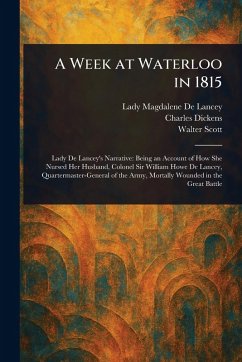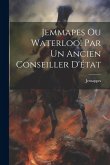"A Week at Waterloo in 1815: Lady De Lancey's Narrative" offers a poignant and intimate glimpse into one of history's most decisive battles. Magdalene De Lancey recounts her harrowing experience nursing her husband, Colonel Sir William Howe De Lancey, Quartermaster-General of the Army, after he was mortally wounded at Waterloo. This compelling memoir provides a unique perspective on the Battle of Waterloo and the human cost of the Napoleonic Wars. Through Lady De Lancey's eyes, readers witness the aftermath of the battle, the suffering of the wounded, and the unwavering devotion of a wife to her husband. A vital historical document, this narrative sheds light on the personal tragedies intertwined with the grand sweep of military history. "A Week at Waterloo in 1815" is an enduring testament to love, loss, and resilience in the face of war. It remains a powerful and moving account for anyone interested in the Napoleonic era and the human side of conflict. This work has been selected by scholars as being culturally important, and is part of the knowledge base of civilization as we know it. This work is in the public domain in the United States of America, and possibly other nations. Within the United States, you may freely copy and distribute this work, as no entity (individual or corporate) has a copyright on the body of the work. Scholars believe, and we concur, that this work is important enough to be preserved, reproduced, and made generally available to the public. We appreciate your support of the preservation process, and thank you for being an important part of keeping this knowledge alive and relevant.
Bitte wählen Sie Ihr Anliegen aus.
Rechnungen
Retourenschein anfordern
Bestellstatus
Storno









